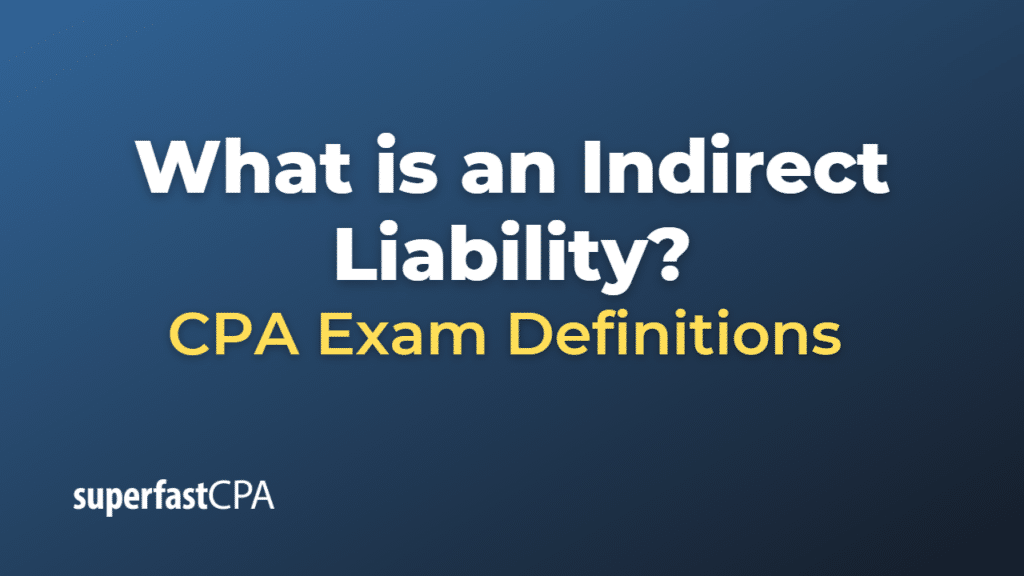Indirect Liability
Indirect liability, also known as vicarious liability, is a legal principle where one party is held responsible for the actions of another party. This typically occurs when one party has a duty to control or supervise the actions of another party.
A common example of indirect or vicarious liability is in an employer-employee relationship. If an employee causes harm to another person while carrying out their job duties, the employer could be held vicariously liable for those actions. This is because the employer is expected to supervise and control the actions of their employees.
Here are a few other instances where indirect liability could apply:
- A parent could be held vicariously liable for the negligent actions of a minor child.
- A car owner could be held vicariously liable for damages caused by someone else driving their car with their permission.
- A company could be held vicariously liable for a defective product produced by a subcontractor.
In these cases, the party held indirectly liable may not have directly caused the harm, but they have a legal responsibility due to their relationship with the party who did cause the harm. It’s important to note that the specifics of when and how indirect liability applies can vary greatly depending on jurisdiction and the specifics of the law.
Example of an Indirect Liability
Let’s consider a scenario involving an employer and an employee.
Imagine a pizza delivery company, “Quick Slice Pizza.” They employ several delivery drivers to deliver pizzas to their customers. One evening, during a delivery, one of their drivers accidentally hits a pedestrian while trying to rush a delivery.
The pedestrian is injured and decides to sue for damages. In this situation, not only could the delivery driver be held directly liable for the accident because he was the one driving, but Quick Slice Pizza could also be held indirectly (or vicariously) liable.
This is because the driver was an employee of Quick Slice Pizza and was performing his job duties at the time of the accident. The law often holds employers responsible for the actions of their employees that occur in the course of their employment. Therefore, even though Quick Slice Pizza wasn’t driving the car that hit the pedestrian, they could still be held responsible for the accident due to their indirect liability.
In real life, these situations can be quite complex and can depend on many factors, including the details of the employment relationship, the specifics of the accident, and the laws of the jurisdiction in which it occurred. Anyone facing a potential indirect liability situation should consult with a qualified legal professional to understand their potential responsibilities.













